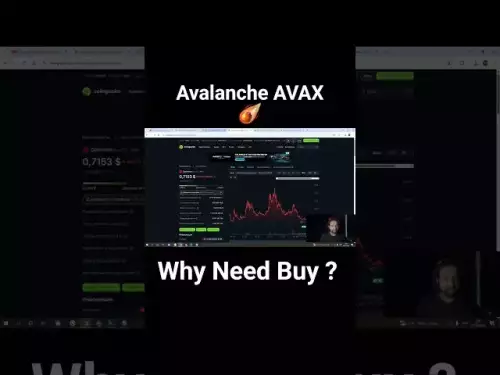 |
|
 |
|
 |
|
 |
|
 |
|
 |
|
 |
|
 |
|
 |
|
 |
|
 |
|
 |
|
 |
|
 |
|
 |
|
Cryptocurrency News Articles
The Ethereum Foundation (EF): Its Function and Role Within the Ethereum Ecosystem
Jan 22, 2025 at 04:16 pm
Concerns about the Ethereum Foundation's (EF) leadership and its direction were recently addressed by Vitalik Buterin, who clarified the EF's function and role

The Ethereum Foundation (EF) is just one part of a much larger decentralized ecosystem, as Vitalik Buterin clarified in his recent remarks.
Ethereum's goal of becoming a world computer is not dependent on a single organization, but rather on a network of companies, developers and community-driven projects.
EF's function, as Buterin clarified, is to help Ethereum succeed in the areas where it can be most effective, not to try to control every facet of its development.
This includes providing targeted support for the Ethereum network through events like hackathons, grants and important protocol updates, while allowing other groups to take over areas where they might be more qualified.
By doing this, EF not only reduces the dangers of centralization but also promotes a more open and varied ecosystem.
He also alluded to the possibility that EF's function is often misunderstood. Other companies like Consensys or comparable entities may offer the stronger leadership or more businesslike operations.
These organizations are better equipped to handle specific facets of Ethereum's development, such as scaling commercial applications or creating enterprise solutions, because they frequently follow a for-profit business model.
According to Buterin, EF should not try to control every facet of Ethereum's development or micromanage the network.
Rather, it should continue to support the grassroots initiatives of developers and builders in order to maintain the network's long-term stability and flexibility.
This distributed strategy fosters an atmosphere where several organizations can work together and develop without a single point of failure as Ethereum expands.
This approach not only upholds the decentralization philosophy but also offers Ethereum a strong platform on which to grow as a worldwide open-source platform for decentralized applications.
In the end, EF's job is to empower and enable the ecosystem without taking over, so that Ethereum's future remains inclusive and decentralized.
Disclaimer:info@kdj.com
The information provided is not trading advice. kdj.com does not assume any responsibility for any investments made based on the information provided in this article. Cryptocurrencies are highly volatile and it is highly recommended that you invest with caution after thorough research!
If you believe that the content used on this website infringes your copyright, please contact us immediately (info@kdj.com) and we will delete it promptly.






























































